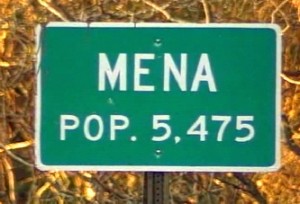|
Home | More Videos | About Us | Contact | Subscribe | Donate

Bill Clinton's Lies:
CIA drug trafficking in Mena, Arkansas
Program length - 2:33
|
|
|
Subscribe to Brasscheck TV
Your e-mail address is kept absolutely private
We make it easy to unsubscribe at any time
|
|
The Suppressed Article
This is the article which had been scheduled to appear in the Washington Post. After having cleared the legal department for all possible questions of inaccurate statements, the article was scheduled for publication when just as the presses were set to roll, Washington Post Managing Editor Bob Kaiser (Like George Bush, a member of the infamous "Skull & Bones Fraternity), killed the article without explanation. According to the sidebar which appeared with the Penthouse Magazine version of this story, Bob Kaiser refused to even meet with Sally Denton and Roger Morris, hiding in his office while his secretary made excuses.
This is the story that couldn't be suppressed. An investigative report into a scandal that haunts the reputations of three presidents - Reagan, Bush, and Clinton.
THE CRIMES OF MENA
By Sally Denton and Roger Morris
 Barry Seal - gunrunner, drug trafficker, and covert C.I.A. operative extraordinaire - is hardly a familiar name in American politics. But nine years after he was murdered in a hail of bullets by Medellin cartel hit men outside a Salvation Army shelter in Baton Rouge, Louisiana, he has come back to haunt the reputations of three American presidents. Barry Seal - gunrunner, drug trafficker, and covert C.I.A. operative extraordinaire - is hardly a familiar name in American politics. But nine years after he was murdered in a hail of bullets by Medellin cartel hit men outside a Salvation Army shelter in Baton Rouge, Louisiana, he has come back to haunt the reputations of three American presidents.
Seal's legacy includes more than 2,000 newly discovered documents that now verify and quantify much of what previously had been only suspicion, conjecture, and legend. The documents confirm that from 1981 to his brutal death in 1986, Barry Seal carried on one of the most lucrative, extensive, and brazen operations in the history of the international drug trade, and that he did it with the evident complicity, if not collusion, of elements of the United States government, apparently with the acquiescence of Ronald Reagan's administration, impunity from any subsequent exposure by George Bush's administration, and under the usually acute political nose of then Arkansas governor Bill Clinton.
The newly unearthed papers show the real Seal as far more impressive and well-connected than the character played by Dennis Hopper in a made-for-TV movie some years ago, loosely based on the smuggler's life. The film portrayed the pudgy pilot as a hapless victim, caught in a cross fire between bungling but benign government agencies and Latin drug lords. The truth sprinkled through the documents is a richer - and altogether more sinister - matter of national and individual corruption. It is a tale of massive, socially devastating crime, of what seems to have been an official cover-up to match, and, not least, of the strange reluctance of so-called mainstream American journalism to come to grips with the phenomenon and its ominous implications - even when the documentary evidence had appeared.
The trail winds back to another slightly bruited but obscure name - a small place in western Arkansas called Mena.
Of the many stories emerging from the Arkansas of the 1980s that was crucible to the Clinton presidency, none has been more elusive than the charges surrounding Mena. Nestled in the dense pine and hardwood forests of the Ouachita Mountains, some 160 miles west of Little Rock, once thought a refuge for nineteenth-century border outlaws and even a hotbed of Depression-era anarchists, the tiny town has been the locale for persistent reports of drug smuggling, gunrunning, and money laundering tracing to the early eighties, when Seal based his aircraft at Mena's Intermountain Regional Airport.
From first accounts circulating locally in Arkansas, the story surfaced nationally as early as 1989 in a *Penthouse* article called "Snowbound," written by the investigative reporter John Cummings, and in a Jack Anderson column, but was never advanced at the time by other media. Few reporters covering Clinton in the 1992 campaign missed hearing at least something about Mena. But it was obviously a serious and demanding subject - the specter of vast drug smuggling with C.I.A. involvement - and none of the major media pursued it seriously During 1992, the story was kept alive by Sarah McClendon, *The Nation*, and *The Village Voice*.
Then, after Clinton became president, Mena began to reappear. Over the past year, CBS News and *The Wall Street Journal* have reported the original, un-quieted charges surrounding Mena, including the shadow of some C.l.A. (or "national security") involvement in the gun and drug traffic, and the apparent failure of then governor Clinton to pursue evidence of such international crime so close to home.
Continue reading here



Brasscheck TV's answer to the normal human question: "What can I do?"
For more Bad guys: videos, click here
See the complete catalog of
brasscheck tv videos
About Us | Information for subscribers | Privacy Policy | Contact
|